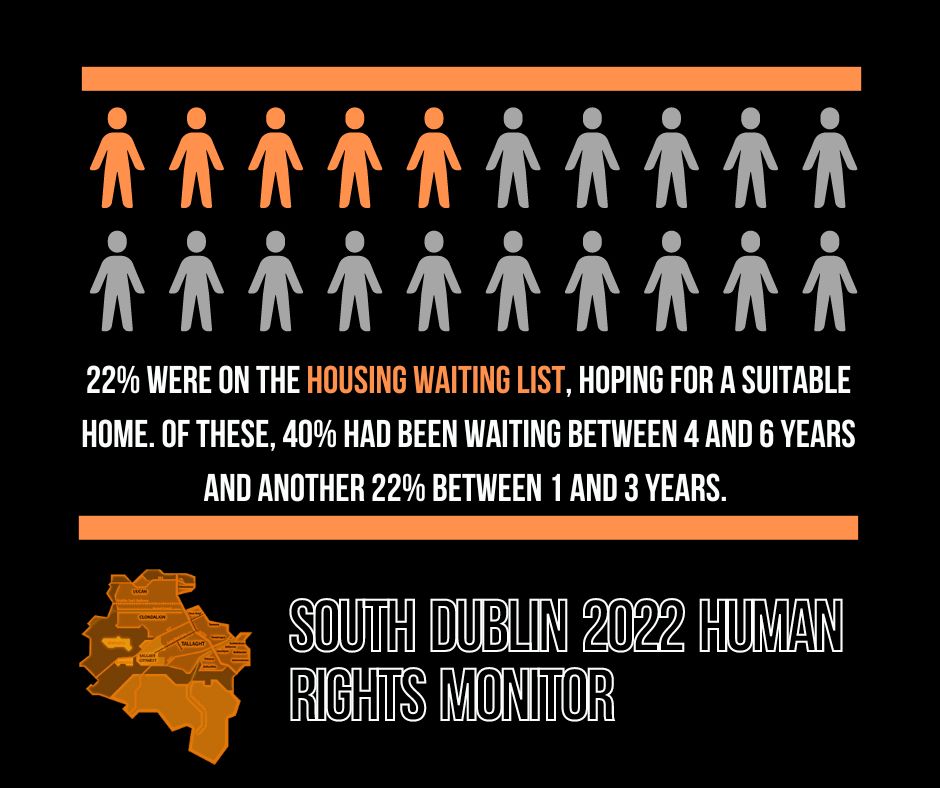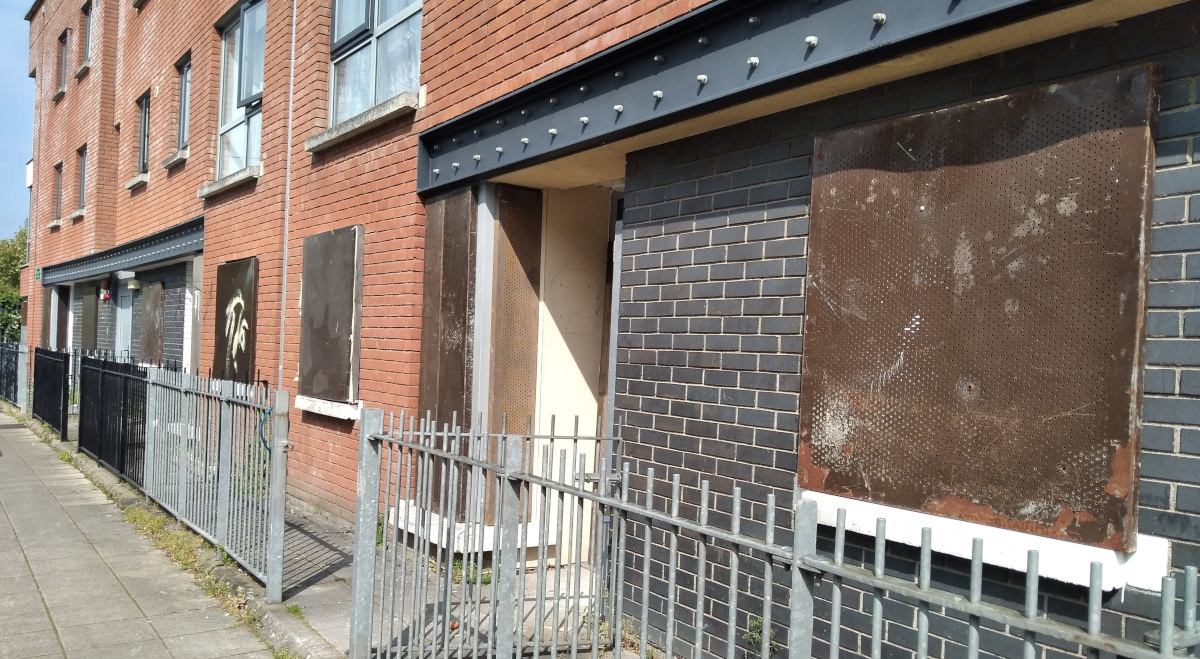The state of human rights in South Dublin 2022: housing rights in SDCC
The final part in a three-part series following a community mobilisation to monitor international human rights at a local level
The Irish Government signed up to the United Nations Covenant on Economic Social and Cultural rights on the 1st October 1973. All Irish Government institutions, including local councils, public authorities, elected representatives and public officials are duty bearers charged with progressively realising human rights in accordance with local and international law.
“The States Parties to the present Covenant recognize the right of everyone to an adequate standard of living for himself and his family, including adequate food, clothing and housing, and to the continuous improvement of living conditions.” - International Covenant on Economic and Social Rights article 11.1
During the spring and summer of 2022, community organisers in the Balgaddy, Cushlawn and Clondalkin areas of south Dublin supported local families to carry out a research project, surveying and photo mapping to assess the state of human rights in our communities. 108 families took part. This report by the Rights Platform sets out what we found on the state of housing rights.

“I’m currently living in mother’s home, I sleep with my 2 children in 1 room. My sister has her child in her room” – South Dublin Resident, August 2022.
Survey Results
Most people who took part in our survey live in social housing (84%). Just under 10% rent from a private landlord. Half of the people we interviewed were living with someone who was disabled or had a chronic health condition. Almost a third said their home was overcrowded. 4 out of 5 of people living in overcrowded conditions had children under 18 at home. Just over one third felt that their home actually met the needs of their household. 22% were on the housing waiting list, hoping for a suitable home.
Of these, 40% had been waiting between 4 and 6 years and another 22% between 1 and 3 years. More than one in three people felt their living conditions negatively impacted their physical health. For mental health the figure was one in four.
These are just statistics. Every conversation with every family was an indictment on how those responsible for protecting our rights, are ignoring them.
Over a third said they didn’t have an effective heating system, made worse by rising costs and winter on its way. Over half reported damp and/or mould, despite council constantly calling this condensation, passing the buck on repairs back to residents. Three out of five reported difficulty getting repairs done.
These are just statistics. Every conversation with every family was an indictment on how those responsible for protecting our rights, are ignoring them.
Next Steps
International human rights law is clear about what our rights are;
“Adequate housing must be habitable, in terms of providing the inhabitants with adequate space and protecting them from cold, damp, heat, rain, wind or other threats to health, structural hazards, and disease vectors. The physical safety of occupants must be guaranteed.” - CESCR General Comment 4 on the right to housing
Irish law is clear on the responsibilities for guaranteeing adequate housing conditions;
“a proper state of structural repair” means essentially sound, with roof, floors, ceilings, walls and stairs in good repair and not subject to serious dampness or liable to collapse because they are rotted or otherwise defective." - The Residential Tenancies Act

South Dublin County Council, in its role as a housing authority, is responsible for enforcing these minimum standards in our homes, as well as working to improve them over time.
The Rights Platform collected testimonies from families which demonstrate the Council failing to live up to its local policy and international human rights commitments, including explicitly stating to residents who were requesting repairs that:
- Repairs would only take place during office hours
- In emergencies SDCC would only act to ‘make safe’ before scheduling further ‘in-hours’ repairs.
- Council would not carry out repairs for residents in rent arrears accept for urgent and emergency cases.
- Tenants are responsible for non-structural repairs.
- And that ‘condensation’ (damp) is not their problem
Community researchers with the Rights Platform were able to gather hundreds of images of damage and disrepair, which residents had reported, and South Dublin County Council had failed to address. In a community suffering a cost of living crisis, on top of a housing crisis, emerging from a pandemic and facing into a climate crisis – we cannot accept this.
If you would like to join the community meetings on the 7th and 8th November 2022 to be part of a discussion on how we can respond to defend our rights in south Dublin, email – aidlloyd@gmail.com